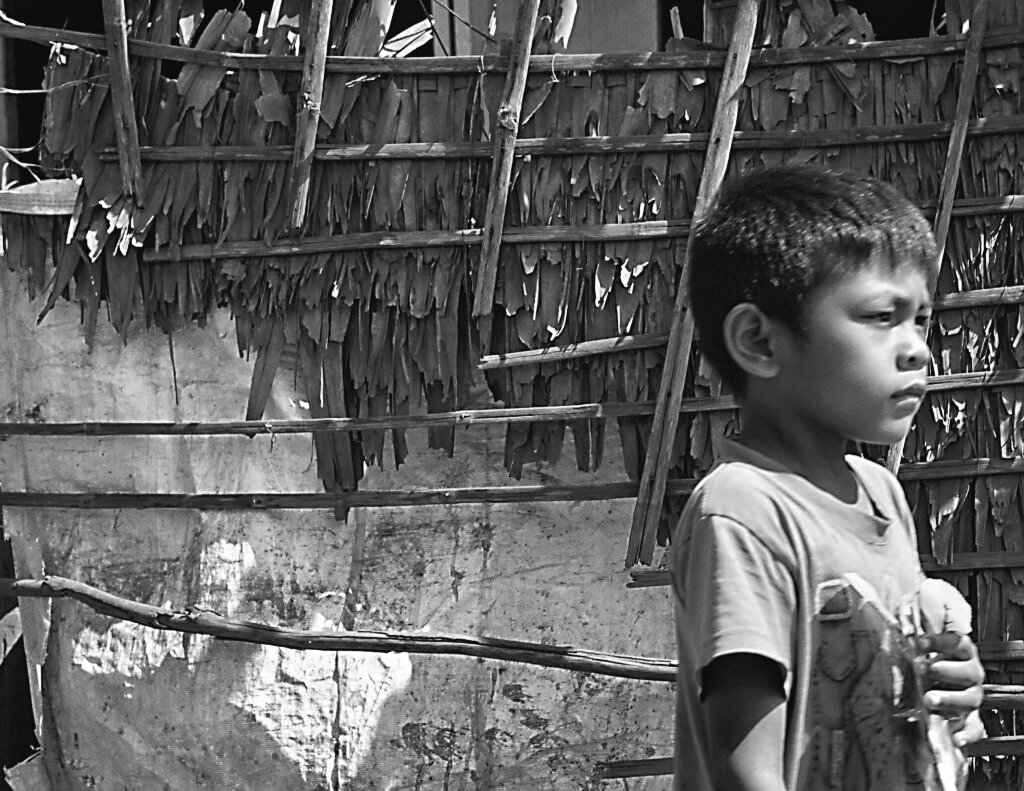
He walks alone, just after sunrise, barefoot along the broken road that curves with the edge of Tonlé Sap, where water and land argue with each other every season. His name is Chanra, maybe nine, maybe less—thin limbs, cracked heels, dust clinging like a second skin. His shirt is more hole than fabric, and his shorts are held up by a strip of old fishing line.
The road isn’t paved. It’s a chalky thread between houses on stilts, where motorbikes pass too fast and chickens scatter like tossed cards. He carries no bag. Just a dented tin bowl for collecting scraps,
and a plastic bottle half-filled with cloudy rainwater. His hair is the color of river silt, his eyes wide—not with wonder, but hunger. Not desperate, just used to waiting.
He stops sometimes to toe a stone, or wave at the girl with the laundry line who always smiles back.
Sometimes he finds dropped fruit, a coin, a half-smoked cigarette to bring home for his uncle.
The lake glitters just beyond the tree line. In the wet season, it swells like a lung, flooding the paths he walks. In the dry, it shrinks into cracked mud and memory. But Chanra walks the same, with the rhythm of someone used to both.
He hums a song his mother sang—before she left to work in Phnom Penh, before the boat capsized,
before words stopped being enough. Other boys ride bikes, chase kites. Chanra walks.
Past boats tethered like tired animals. Past fish drying on blue tarps. Past tourists who photograph the lake, but not him. He is not loud. Not angry. He walks.
Because walking is what the poor do between chances. Because someone needs to fetch water.
Because tomorrow there might be school, or not.
And because Tonlé Sap may rise or fall, but this road—dusty, uneven, and nameless—is the only thing he owns beneath his feet.